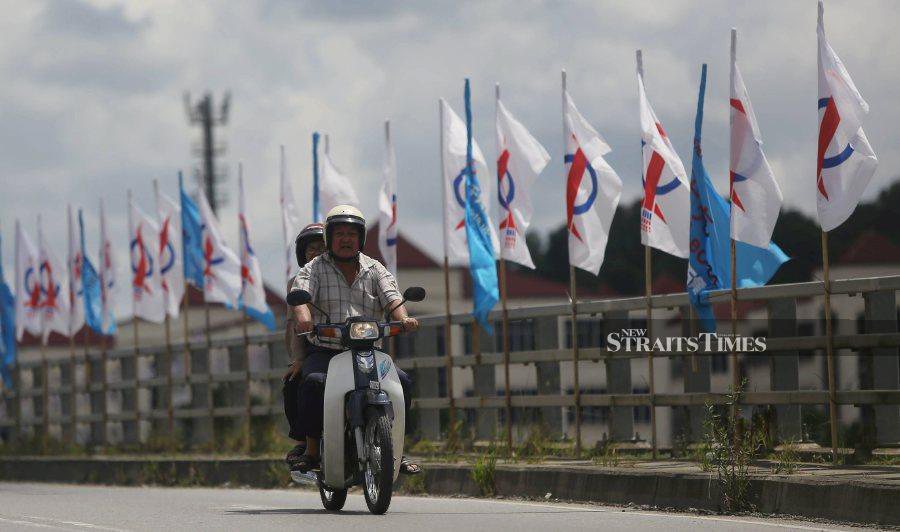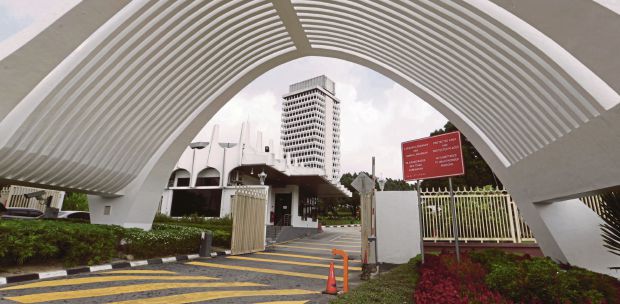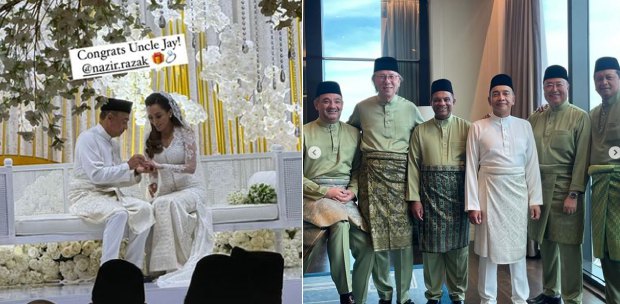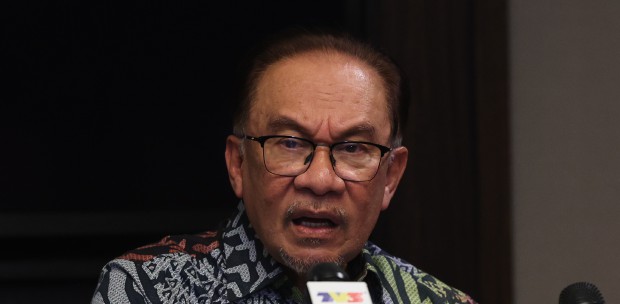"I'm doing it for the country, Tun." So said Lim Guan Eng, DAP secretary-general and finance minister under the short-lived Pakatan Harapan government that took power after the 2018 general election.
He was speaking on the fateful night of Feb 28, 2020, as recounted by Datin Paduka Marina Mahathir in her new book, The Apple and the Tree.
Tun Dr Mahathir Mohamad had told the principals of PH gathered at his house in a last-ditch effort to save their government that he would only agree to lead that government again provided Lim and Datuk Seri Anwar Ibrahim — both of whom he deemed "radioactive" — were not in the cabinet.
Lim finally agreed after a meeting that went late into the night. Hence, those words above which must have been painful for any political leader to utter, more so from one whose party has the most seats in the PH coalition.
It was not clear from Marina's recounting what exactly Anwar had said in response. But all this has proven to be academic. The PH government was no more the following day.
There has been plenty of tears and recriminations ever since the so-called Sheraton Move that marked the demise of the PH government two months short of its second anniversary.
It also meant three successive prime ministers — Tun Abdullah Ahmad Badawi, Datuk Seri Najib Razak and Dr Mahathir — led administrations promising reforms which did not pan out.
So it was not for lack of trying. As Tan Sri Nazir Razak noted in his book, What's in a Name, after Abdullah's ill-starred reform efforts, Najib took a stab at his own "transformation" agenda.
But if it could be claimed that Abdullah started out with an overwhelming electoral mandate for reforms, but fumbled in the follow-through, then Najib made a promising start with economic reforms but failed to obtain a convincing mandate to initiate much tougher political reforms.
Dr Mahathir, on the other hand, readily admitted that PH's reformist manifesto was so ambitious because it did not believe it would win and be saddled with the onerous chore of implementing its promises.
In his first stint as prime minister, Dr Mahathir was so in command of his party and government that he could bulldoze many of his pet initiatives through.
It can be argued that in so doing, he planted the very seeds of public sector and political corruption and over-centralisation of power in the office he held (two of three major ills Nazir identified, the other being identity politics) that ultimately made the 1Malaysia Development Bhd scandal possible and perhaps inevitable.
Dr Mahathir's instincts may still be to wield a big political stick, but times have changed (and credit due largely to the good he did in his earlier prime ministerial stint). A more collegial political ethos has to be the order of the day for the nation, going forward.
Such an ethos may do the country a world of good in the long run. But in the short term, as PH's abbreviated tenure shows, we need to deal with the pains and frustrations of a more consultative mode of political governance.
I tend to agree with Nazir that although identity politics hinders the nation's progress, we need to be realistic enough to recognise that it is here to stay, at least for a while yet.
Democratic politics has many shortcomings, to be sure, although most people everywhere still agree it to be the worst way to govern, except for all the other ways.
So, most Malaysians accept, consciously or otherwise, that our racially-defined politics suits them.
DAP, for all its political success and somewhat valiant efforts to become truly multiracial, still finds itself constrained by the fact that our politics is organised along racial lines.
That said, few Malaysians see the glaring illogic and contradiction of the two main PH parties claiming to be multiracial.
If DAP and PKR cannot organise themselves as a single multiracial party, is it any wonder the coalition struggles with coherence as a government?
The writer views developments in the nation, region and wider world from his vantage point in Kuching
The views expressed in this article are the author's own and do not necessarily reflect those of the New Straits Times






